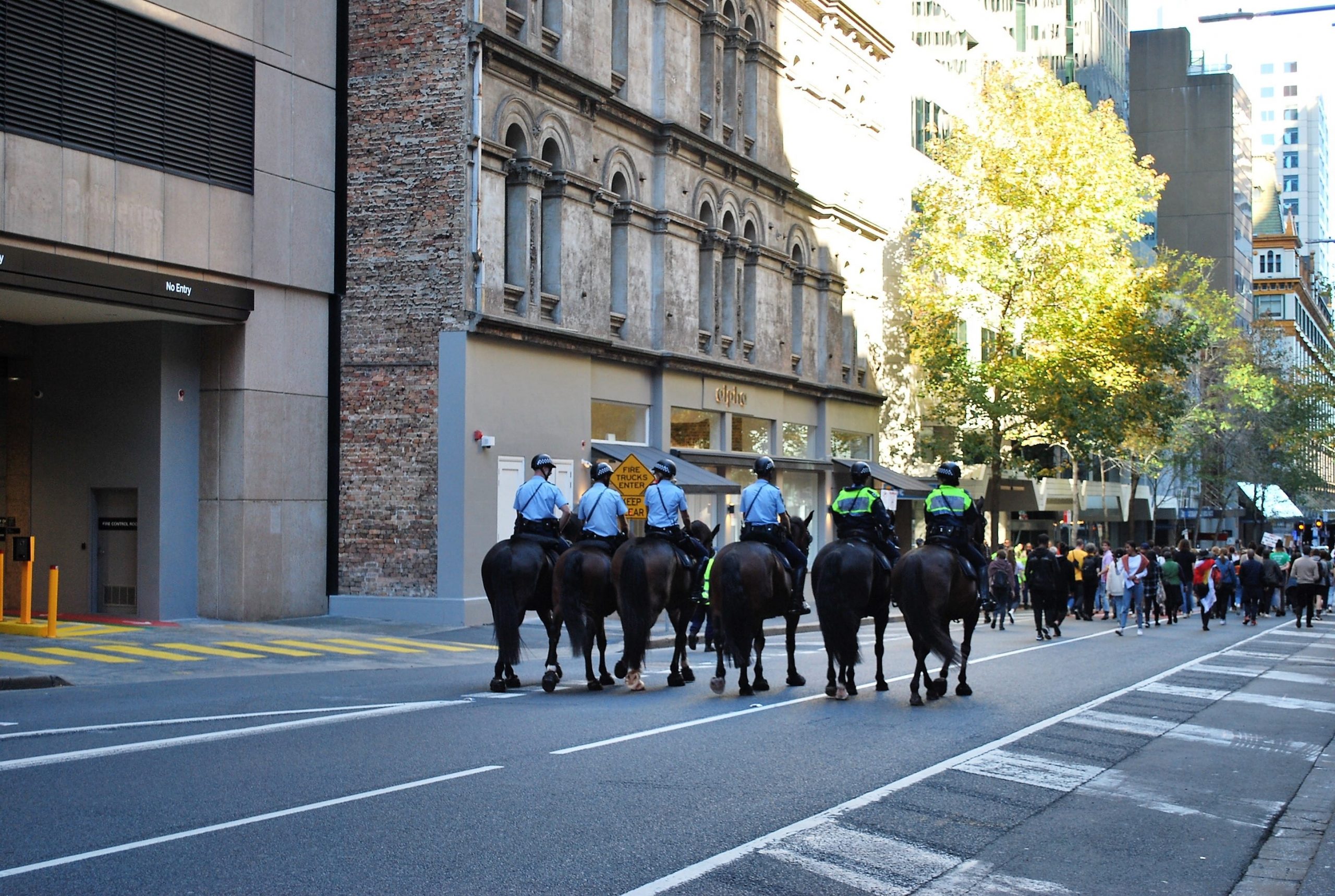A “breach of the peace” includes an act done or threatened to be done which either actually harms a person or in his presence his property, or is likely to cause such harm, or which puts someone in fear of such harm being done. This definition of breach of the peace was expressed in the case of R v Howell [1981] 3 All E.R. 383.
The case of State of New South Wales v Bouffler [2017] NSWCA 185 also expressed the meaning of a “breach of the peace” and said that it includes “a wide range of actions and threatened actions that interfere with the ordinary operation of civil society.”
A mere disturbance if it does not involve violence or a threat of violence does not constitute a “breach of the peace”.
A breach of the peace is not exhaustive and may be constituted in many ways. Each case will be dependent upon its own facts.
NSW police officers have powers to deal with breaches of the peace, which includes the power to search and arrest a person if that person is committing a breach of the peace. This power is broader and less restrictive than the normal police powers of arrest under section 99 of the Law Enforcement (Powers and Responsibilities) Act (NSW).
Examples of a Breach of the Peace
- Does not include mere disturbance not involving violence or threat of same.
- Includes, a wide range of actions and threatened actions or a realistic apprehension of self-harm. Each case will be fact dependent (NSW v Bouffler [2017] NSWCA 185).
- Includes an act done or threatened to be done which either harms person (or his property), or is likely to cause such harm, or which puts someone in fear of such harm being done (R v Howell [1981] 3 All E.R. 383)
Does Making Noise Amount to a Breach of the Peace?
The mere making of noise in public does not constitute a breach of the peace in New South Wales. Therefore, if you’re making noise, the police cannot arrest or restrain you to prevent a breach of the peace.
Where does the breach of the peace police power come from? The power of the police to arrest or search a person for committing a breach of the peace comes from the common law of Australia. More specifically section 4 of the Law Enforcement (Powers and Responsibilities) Act (NSW) allows for this historical common law power to remain in NSW.
Can Police Arrest You for Breaching the Peace?
Police in NSW can arrest you if the officer reasonably apprehends an imminent breach of the peace from you.
To determine what is a reasonable apprehension of an imminent breach of the peace the courts resort to previous cases referred to as case law. This is also known as the “common law”.
The cases of Albert v Lavin [1981] and Paddington v Bates [1961] are cases that give some direction and insight, namely:
- It’s not enough that the police officer anticipated an imminent breach of the peace.
- The police officer must reasonably anticipate it.
- There must be a real and not a remote possibility of an imminent breach of the peace.
- The restraining may continue as long as is necessary to prevent the imminent breach of peace, but the citizen must then be released or arrested.
- The force used to restrain the citizen must only be such as is reasonable.
Measures short of depriving someone of liberty can be sufficient to prevent an imminent breach of peace. For example, this may be by taking a person by the arm and moving them on, temporarily impounding property, or seizing a mobile phone.
If a police officer attempts to restrain a person from whom the officer forms a reasonable apprehension of an imminent breach of the peace, the officer must use reasonable force if trying to restrain or arrest that person. The use of excessive force will constitute an unlawful arrest, and an unlawful arrest can result in the charge against the accused being dropped or dismissed. It may also result in a legal action in the form of suing the NSW Police to seek compensation.
An arrest is always a measure of last resort for a police officer. If less drastic measures are available and the police officer fails to utilise them before resorting to arrest, then the arrest will be unlawful.
A less drastic measure than arrest may include taking a person by the arm to move them along.
Is Using Offensive Language a Breach of the Peace?
Using offensive language in public does not constitute a reasonable apprehension of an imminent breach of the peace in order to allow police to arrest you. The use of offensive language does not meet the “imminent breach of the peace” test required to allow police to arrest.
The case of Williams v Pinnuck (1983) illustrates this point. Here, an aboriginal woman yelled loudly at other Aboriginal women. The making of such noise in a public place did not amount to a breach of the peace.
Another example is illustrated in the case of Neave v Ryan [1958] Tas where the court said, that shouting loudly in public or addressing a crowd in loud tones does not itself constitute a disturbance of the public peace. If it did, it would endanger free speech. “Public peace” is not “peace and quiet”, it’s public order.
This article is a guide, and credit is given to Mark Dennis SC paper you can find here.
Book a Lawyer Online
Make a booking to arrange a free consult today.
Call For Free Consultation
Call Now to Speak To a Criminal Defence Lawyer
Over 40 Years Combined Experience
Proven SuccessAustralia-Wide
Experienced LawyerGuarantee
 (02) 8606 2218
(02) 8606 2218
 (02) 8606 2218
(02) 8606 2218















